Since 2019, the aim at European level has been to provide more protection for whistleblowers. The EU Directive for the protection of persons who report breaches of Union law (EU Whistleblower Directive) came into force on 23 October 2019.
Law on the protection of whistleblowers – increasing doubts as to the timely transposition
The Member States have to transpose the EU Whistleblower Directive into national law within two years after it entered into force. The transposition period ends on 17 December 2021. Even though this date is getting closer, there is still no government agreement on a draft law. A draft bill for a better protection of whistleblowers as well as the transposition of the directive for the protection of persons who report breaches of Union law (law on the protection of whistleblowers), prepared by the Federal Ministry of Justice and Consumer Protection in November 2020, was rejected by the Federal government at the end of April 2021. Since then, there is no indication as to when exactly the EU Whistleblower Directive will be transposed into national law.
In view of the recent election for the Bundestag and the suspectedly protracted formation of the government, it seems rather doubtful that a law on the protection of whistleblowers, which sets out the conditions under which a whistleblower may make information about breaches publicly available and ensures an extensive protection of whistleblowers against reprisals such as dismissal and other disadvantages, will be passed before the end of the transposition period.
Two decisions of the ECtHR from 2021 – in each case to the detriment of the whistleblowers
In the first half of 2021, the European Court of Human Rights (ECtHR) published two decisions and, in each case, ruled against the complaining whistleblower.
„Whistleblower have to verify their suspicion“ – Gawlik against Liechtenstein, ECtHR dated 16.02.2021 – 23922/19
The first decision of the ECtHR concerned the German deputy senior physician of the state hospital Liechtenstein, who suspected his superior of active euthanasia of numerous patients, brought charges against said superior with the Liechtenstein public prosecutor’s office for killing on request and was ultimately dismissed with immediate effect because of his report. During his work as a doctor, the Plaintiff had come across evidence that several patients had died after having received morphine, although there was no apparent medical indication for prescribing the drug. However, he based his allegations only on the information in the electronic file, which, as he was aware of, did not contain complete information on the patient’s health status. Complete information on the health status was only available in the written paper patient files which he had not consulted, even though he would have been able to do it at any time. The preliminary proceedings opened in the meantime against the Plaintiff’s superior for killing on request as well as against the Plaintiff himself for alleged false suspicion were suspended by the Liechtenstein public prosecutor’s office. However, the Plaintiff refused to accept his dismissal, which not only resulted in the loss of his job, but also in the loss of his permit of residence for Liechtenstein. The Plaintiff took matters to the ECtHR, claiming his right of free expression had been violated.
The ECtHR declared the dismissal lawful. Although the dismissal interfered with the freedom of expression under Article 10 (1) sentence 1 of the European Convention on Human Rights (ECHR), it was nevertheless justified. In particular, it had been proportionate and necessary. The ECtHR examined this on the base of six criteria:
- public interest in the information;
- authenticity of the information;
- possibilities to first report the concern to superiors or other responsible authorities;
- possible damages for the employer;
- motives of the whistleblowers; and
- severity and consequences of the sanction.
In favour of the Plaintiff, the ECtHR took into account, among other things, a considerable public interest in the disclosed information, because it gave rise to the suspicion that the senior physician had killed several people and could also provide active euthanasia in the future. In order to justify the dismissal, however, the ECtHR relied heavily on the characteristic of authenticity of the information. The Plaintiff should have carefully examined the facts of the case. He would have been able to immediately recognise that his statements were unfounded if he had not only consulted the incomplete electronic files, but also the complete paper files. The urgency due to danger to life would not have prevented him from doing so, because he could have consulted the paper files without major time expenditure.
Thus, the ECtHR made it clear that the information disclosed by whistleblowers must first be verified by them as accurately and reliably as possible. Whether the information subsequently turns out to be false or its accuracy cannot be proven is irrelevant for the protection of whistleblowers, as long as they have made the report in good faith.
No protection for whistleblowers in case of insufficient public interest – Halet against Luxemburg, ECtHR on 11 May 2021, 21884/18
This decision is the latest court ruling on the “Luxleaks” financial scandal, in which two employees of an auditing company made public binding advance tax rulings of the Luxembourg tax authorities by passing them on to the press. These tax rulings facilitated tax reductions to below one per cent for several international corporations at the expense of neighbouring countries.
The charges in the prosecution against both employees and the journalist who published the information were, among others, theft and disclosure of trade secrets. While the journalist and one of the two employees were eventually acquitted, the second employee was sentenced to a fine of 1,000.00 EUR for theft. The latter then took the case to the European Court of Human Rights, also for violation of his freedom of expression under Article 10(1) ECHR.
Even though the ECtHR considered the Plaintiff a whistleblower, the sentence imposed was not lifted. Although he had pursued a legitimate aim, according to the ECtHR, the information he disclosed was not of sufficient public interest to compensate for the serious breach of trade secrets and the resulting damage to his employer’s reputation. The Plaintiff only contacted the journalist with confidential tax documents after the affair had been made public by his colleague. Due to the mild fine of EUR 1,000.00, the ECtHR stated that there was no fear of a future deterrent to the exercise of freedom of expression as a result of this decision.
Conclusion
It only remains to be seen how the German legislators will transpose the Whistleblower Directive into national law and how strongly whistleblowers will be protected. It is true that potential whistleblowers may still feel a little “intimidated” due to the current court decisions in Europe and the (still) missing transposition of the EU Whistleblower Directive and therefore initially refrain from reporting. However, a confrontation with this issue and an adequate transposition of a (legally regulated) whistleblower protection for the companies and authorities concerned is inevitable sooner or later. And while the government cannot yet agree on the final law on the protection of whistleblowers, more and more companies are now introducing various whistleblowing systems, such as so-called whistleblowing hotlines, in order to identify compliance breaches at an early stage.





